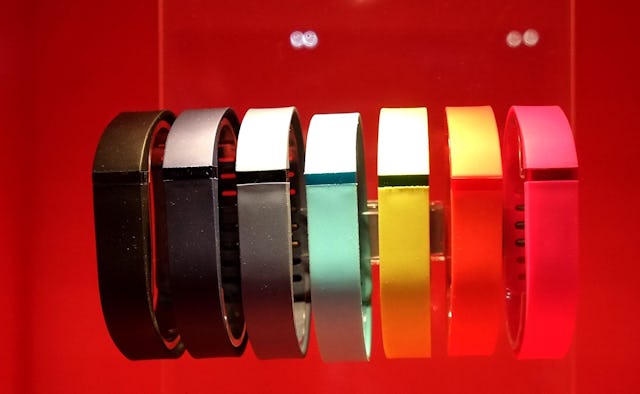The Real Reason You Should Buy a Fitbit

The advent of any new high-tech gadget always brings with it a slew of articles claiming to answer the question everyone’s Googling: “Should I buy an iPhone 6?” Yes! But only if you love a giant phone! “Should I buy a Vitamix 9000?” Yes! But only if you make your own nut butters and sawdusts! “Should I buy a Tesla?” Yes! What else are you going to do with that $100,000?
RELATED: Get Their Butts Off The Couch With The Best Kids Fitbit Watches And Fitness Trackers
For years, I Googled “Should I buy a Fitbit” weekly and devoured every list of pros (see in an instant how many steps you’ve walked, how many calories you’ve burned) and cons (the pedometer isn’t that accurate, it’ll give you impetigo) I could uncover. When I finally decided that yes, I could deal with being one of those people wearing a weird matte rubber bracelet all the time and the judgment that would justifiably incur, I went all in with the Fitbit.
The real reason I love my Fitbit (I recently switched from the Fitbit Force to the just-relased Fitbit Charge) has nothing to do with its bells and whistles. It has to do with the way it makes dieting feel achievable, scientifically measurable and—I’m not kidding—fun.
The Fitbit puts dieting’s tired, guessworky balancing act to rest.
As anyone who’s ever thrown her hands up in frustration because there is no Weight Watchers Points deduction for “I’m eating my feelings” knows, dieting is a frustrating combination of control, bargaining and patience. It’s estimating the number of calories in a given meal, rationalizing that extra glass of wine because you took the stairs, wondering if your jeans are getting tighter or it’s just mysterious mid-afternoon bloat. There’s a suspicious amount of trust you must have when embarking on a new diet: I am not going to know for months if this is actually working, but it worked for that friend of a friend, so fingers crossed, pass the gluten-free fusilli.
The Fitbit puts dieting’s tired, guessworky balancing act to rest. It really is a revelation to have something on your wrist that’s tracking how many steps you’ve taken, calculating how many calories you’ve burned, and reporting your progress. It’s data. It’s irrefutable. It puts an end to estimating and rationalizing food intake. Instead of feeling guilty for eating a big dinner when I didn’t make it to the gym, I can check the daily stats on my Fitbit and say, without any self-judgment, “I know if I eat more today, I’m not going to lose weight.”
There are zillions of pros and cons lists proliferating around you right now that will give you all the information you could wish for on the Fitbit’s tech specs and fancy capabilities. The only “pro” of owning one that really matters to me is that the Fitbit helps me to have a less emotionally freighted relationship with food. That isn’t one of their fancy selling points, like the altimeter or the automatic sleep tracker, but it should be.
This article was originally published on